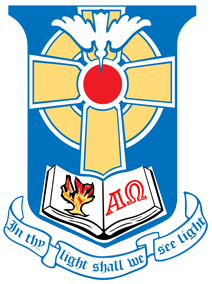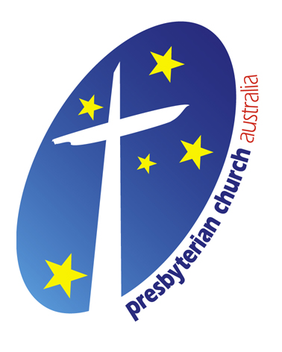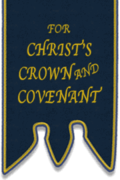
Presbyterianism is a part of the Reformed tradition within Protestantism that broke from the Roman Catholic Church. Presbyterian churches derive their name from the presbyterian form of church government by representative assemblies of elders. Many Reformed churches are organised this way, but the word Presbyterian, when capitalized, is often applied to churches that trace their roots to the Church of Scotland or to English Dissenter groups that formed during the English Civil War.
Presbyterianpolity is a method of church governance typified by the rule of assemblies of presbyters, or elders. Each local church is governed by a body of elected elders usually called the session or consistory, though other terms, such as church board, may apply. Groups of local churches are governed by a higher assembly of elders known as the presbytery or classis; presbyteries can be grouped into a synod, and presbyteries and synods nationwide often join together in a general assembly. Responsibility for conduct of church services is reserved to an ordained minister or pastor known as a teaching elder, or a minister of the word and sacrament.

The Presbyterian Church in America (PCA) is the second-largest Presbyterian church body, behind the Presbyterian Church (USA), and the largest conservative Calvinist denomination in the United States. The PCA is Reformed in theology and presbyterian in government.

The Cumberland Presbyterian Church is a Presbyterian denomination spawned by the Second Great Awakening. In 2019, it had 65,087 members and 673 congregations, of which 51 were located outside of the United States. The word Cumberland comes from the Cumberland River valley where the church was founded.

The Associate Reformed Presbyterian Church (ARPC), as it exists today, is the historical descendant of the Synod of the South, a Synod of the Associate Reformed Church. The original Associate Reformed Church resulted from a merger of the Associate Presbytery and most of the Reformed Presbytery in Philadelphia in 1782. The northern Synods eventually merged with the forebears of the Presbyterian Church (USA). Because of its 1782 date of origin, it is one of the oldest of the United States' theologically and socially conservative denominations.

The Presbyterian Church of Eastern Australia (PCEA) is a small Presbyterian denomination which was formed in Sydney on 10 October 1846 by three ministers and a ruling elder. As of December 2012 it consists of 13 pastoral charges with a total of 17 regular preaching points, 12 serving ministers, 1 minister without charge, 6 retired ministers and a community of about 800.

The Presbyterian Church in Canada is a Presbyterian denomination, serving in Canada under this name since 1875. The United Church of Canada claimed the right to the name from 1925 to 1939. According to the Canada 2001 Census 409,830 Canadians identify themselves as Presbyterian, that is, 1.4 percent of the population.

The Presbyterian Church of Australia (PCA), founded in 1901, is the largest Presbyterian denomination in Australia. The larger Uniting Church in Australia incorporated about two-thirds of the PCA in 1977.
The Free Church of Scotland is an evangelical, Calvinist denomination in Scotland. It was historically part of the original Free Church of Scotland that remained outside the union with the United Presbyterian Church of Scotland in 1900. Now, it remains a distinct Presbyterian denomination in Scotland.

The Protestant Reformed Churches in America is a Protestant denomination of 33 churches and over 8,000 members.

David Steele, Sr. was a Reformed Presbyterian or Covenanter minister.
The Free Presbyterian Church of Victoria, also known as the Free Church of Australia Felix, was an Australian Presbyterian denomination founded in Melbourne, Victoria in 1846 as a result of the Disruption of 1843 in the Church of Scotland.

The Reformed Presbyterian Church of North America (RPCNA) is a Presbyterian church with congregations and missions throughout the United States, Canada, Japan, and Chile. Its beliefs—held in common with other members of the Reformed Presbyterian Global Alliance—place it in the conservative wing of the Reformed family of Protestant churches. Below the Bible—which is held as divinely inspired and without error—the church is committed to several "subordinate standards," together considered with its constitution: the Westminster Confession of Faith and Larger and Shorter Catechisms, along with its Testimony, Directory for Church Government, the Book of Discipline, and Directory for Worship.

The Reformed Presbyterian Church of Ireland is a Presbyterian church in Ireland. The church currently has forty-three congregations, of which thirty-five are located in Northern Ireland; the remaining eight are located in the Republic of Ireland. As of 2011, its total communicant membership is 1,952. The distribution of Reformed Presbyterians accords with the distribution of the Ulster Scots, with most congregations based in counties Antrim, Londonderry and Down. Several new congregations have, however, been formed recently in the Belfast area, along with fellowships in Galway and Dublin.

The Reformed Presbyterian Church of Scotland is a small, Scottish, Presbyterian church denomination. Theologically they are similar to many other Presbyterian denominations in that their office-bearers subscribe to the Westminster Confession of Faith. In practice, they are more theologically conservative than most Scottish Presbyterians and maintain a very traditional form of worship. In 1690, after the Revolution, Alexander Shields joined the Church of Scotland, and was received along with two other ministers. These had previously ministered to a group of dissenters of the United Societies at a time when unlicensed meetings were outlawed. Unlike these ministers, some Presbyterians did not join the reconstituted Church of Scotland. From these roots the Reformed Presbyterian Church of Scotland was formed. It grew until there were congregations in several countries. In 1876 the majority of Reformed Presbyterians, or RPs, joined the Free Church of Scotland, and thus the present-day church, which remained outside this union, is a continuing church. There are currently Scottish RP congregations in Airdrie, Stranraer, Stornoway, Glasgow, and North Edinburgh. Internationally they form part of the Reformed Presbyterian Communion.

The Presbyterian Church in Ireland is the largest Presbyterian denomination in the Republic of Ireland, and the largest Protestant denomination in Northern Ireland. Like most Christian churches in Ireland, it is organised on an all-island basis, in both Northern Ireland and the Republic of Ireland. The church has approximately 210,000 members.
The Presbyterian Church in the Republic of Korea or the KiJang Presbyterian Church is an ecumenically-minded Presbyterian denomination in South Korea.

The Reformed Presbyterian Global Alliance is a communion of Presbyterians originating in Scotland in 1690 when its members refused to conform to the establishment of the Church of Scotland. The Reformed Presbyterian churches collectively have approximately 9,500 members worldwide in Northern Ireland, the Republic of Ireland, Scotland, France, the United States of America, Canada, Japan, South Sudan, and Australia.
The Africa Evangelical Presbyterian Church (AEPC) is a growing conservative Presbyterian and Reformed Church which adheres to the Westminster Confession of Faith started in Kenya, later spread to the surrounding countries like Burundi, Tanzania, Congo and as far as Zimbabwe. The headquarters of the church is located in Nairobi, Kenya. The current Moderator is Rev. Dr Joseph Mutei installed on Sunday 26th June 2022.

Presbyterianism has had a presence in the United States since colonial times and has exerted an important influence over broader American religion and culture.














